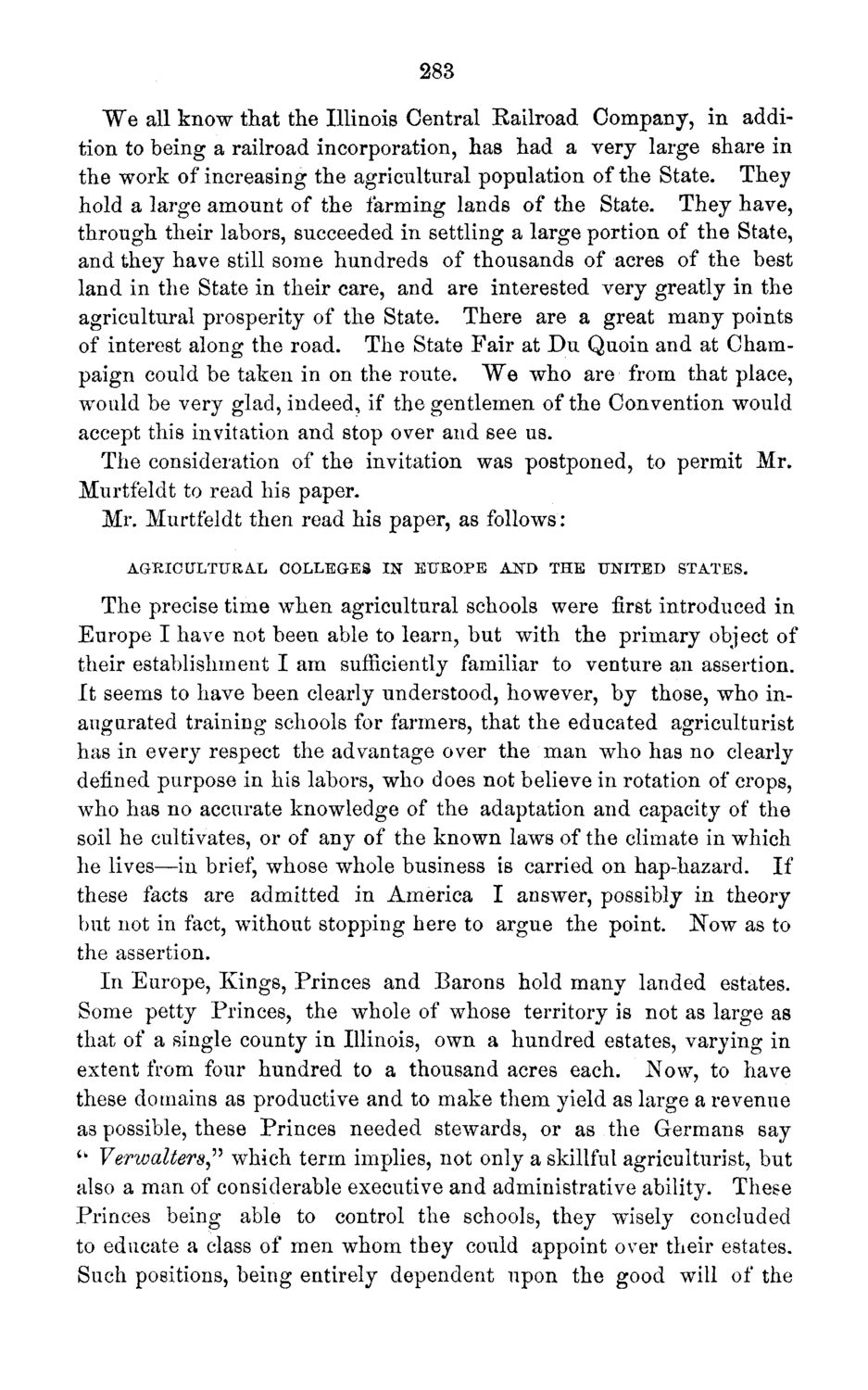| |
| |
Caption: Board of Trustees Minutes - 1871
This is a reduced-resolution page image for fast online browsing.

EXTRACTED TEXT FROM PAGE:
283 We all know that the Illinois Central Railroad Company, in addition to being a railroad incorporation, has had a very large share in the work of increasing the agricultural population of the State. They hold a large amount of the farming lands of the State. They have, through their labors, succeeded in settling a large portion of the State, and they have still some hundreds of thousands of acres of the best land in the State in their care, and are interested very greatly in the agricultural prosperity of the State. There are a great many points of interest along the road. The State Fair at Du Quoin and at Champaign could be taken in on the route. We who are from that place, would be very glad, indeed, if the gentlemen of the Convention would accept this invitation and stop over and see us. The consideration of the invitation was postponed, to permit Mr. Murtfeldt to read his paper. Mr. Murtfeldt then read his paper, as follows: AGRICULTURAL COLLEGES I N E U R O P E AND THE UNITED STATES. The precise time when agricultural schools were first introduced in Europe I have not been able to learn, but with the primary object of their establishment I am sufficiently familiar to venture an assertion. It seems to have been clearly understood, however, by those, who inaugurated training schools for farmers, that the educated agriculturist has in every respect the advantage over the man who has no clearly defined purpose in his labors, who does not believe in rotation of crops, who has no accurate knowledge of the adaptation and capacity of the soil he cultivates, or of any of the known laws of the climate in which he lives—in brief, whose whole business is carried on hap-hazard. If these facts are admitted in America I answer, possibly in theory but not in fact, without stopping here to argue the point. Now as to the assertion. In Europe, Kings, Princes and Barons hold many landed estates. Some petty Princes, the whole of whose territory is not as large as that of a single county in Illinois, own a hundred estates, varying in extent from four hundred to a thousand acres each. Now, to have these domains as productive and to make them yield as large a revenue a3 possible, these Princes needed stewards, or as the Germans say u Verwalters" which term implies, not only a skillful agriculturist, but also a man of considerable executive and administrative ability. These Princes being able to control the schools, they wisely concluded to educate a class of men whom they could appoint over their estates. Such positions, being entirely dependent upon the good will of the
| |